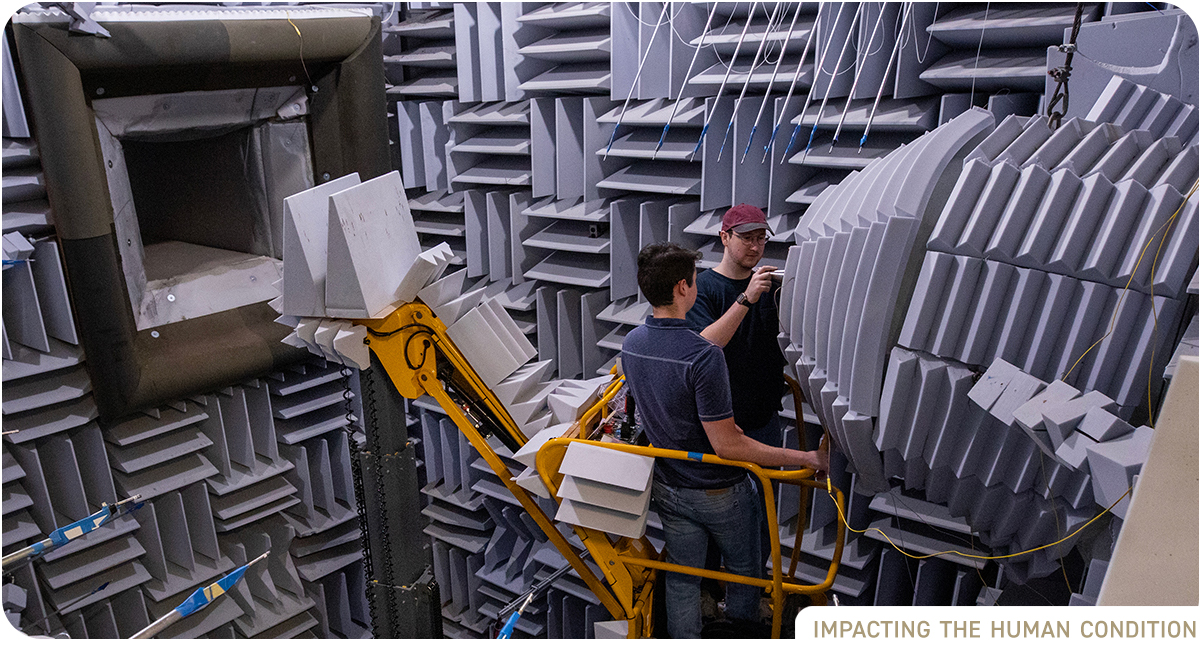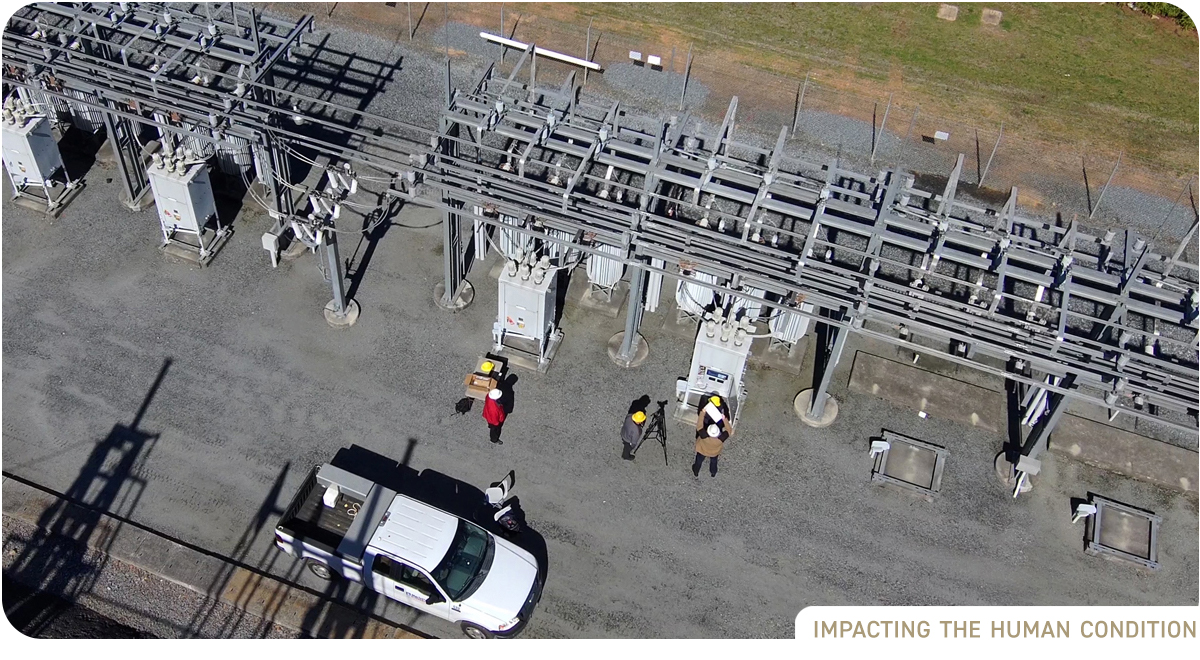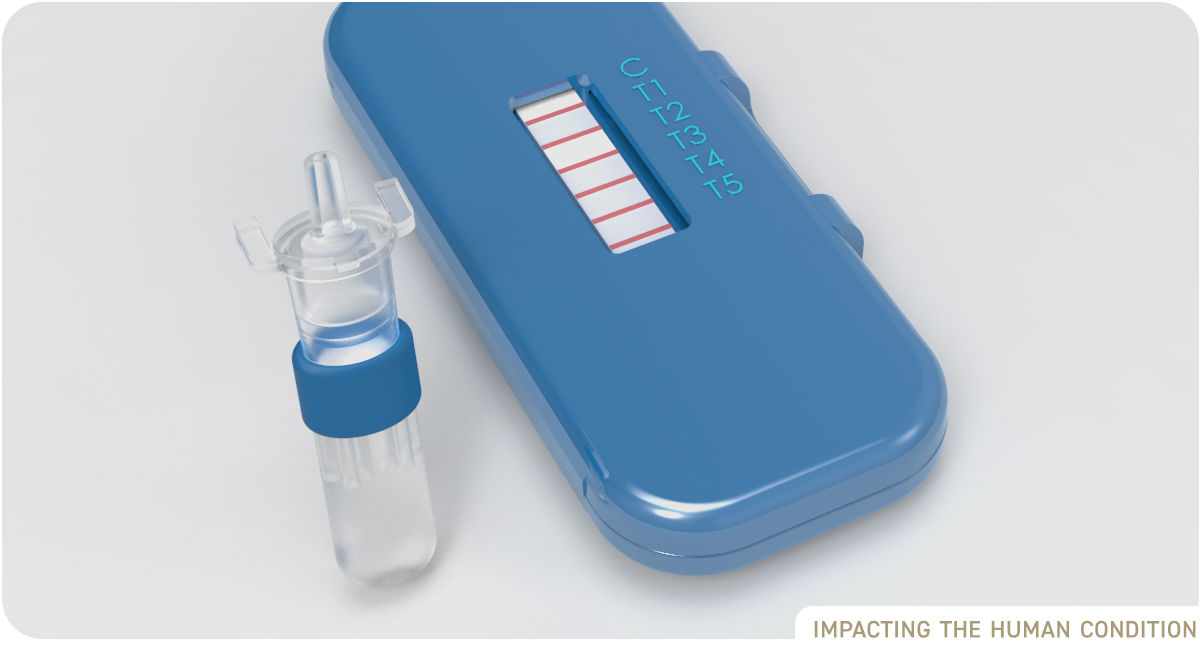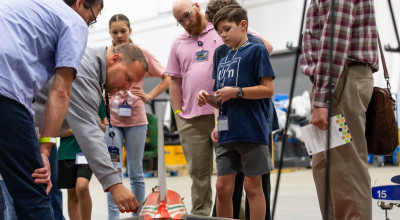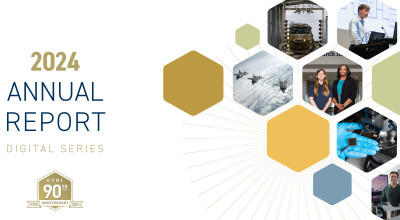Message from the Director
I am pleased to share with you the Georgia Tech Research Institute’s (GTRI) 2023 Annual Report. As the applied research unit of the Georgia Institute of Technology (Georgia Tech) and a Department of Defense University Affiliated Research Center (UARC), our people strive to be the foremost innovators creating a secure nation, a prosperous Georgia, and a sustainable world.
FY23 was a year of rapid growth and continued progress for our team. Government and industry sponsors awarded GTRI a record $941 million, showing confidence in our science and engineering expertise that is used to turn ideas into workable solutions. This unprecedented growth and, more importantly, concomitant impact would not have been made possible without your support. Thank you!
Throughout this report, I am excited for you to read about our achievements, which not only reflect the work of our renowned researchers and mission-support units, but also reinforce our dedication to fulfilling our mission to enhance Georgia’s economic development, secure our nation, improve the human condition, and educate future technology leaders. Within each of these mission areas you will find impact related to our four primary technical portfolios: Sensors, Information, Systems, and Technology for Society. This year we are also highlighting our Independent Research and Development (IRAD) Program which was our largest ever in FY23 and is the seed corn for GTRI’s continued mission impact.
As we close out another year, I am proud of all we have accomplished together, and I look forward to working with you to solve even greater challenges in FY24.

James J. Hudgens
Senior Vice President, Georgia Tech
Director, Georgia Tech Research Institute

See Georgia Tech numbers at 2023 Georgia Tech Research Annual Report.


Digital Inspection Portal Uses AI and Machine Vision to Examine Moving Trains
Collaboration between Norfolk Southern Corporation and the Georgia Tech Research Institute (GTRI) has led to the development of digital train inspection portals that use advanced machine vision and artificial intelligence to examine trains moving at speeds of up to 60 miles per hour to identify mechanical defects that may exist.
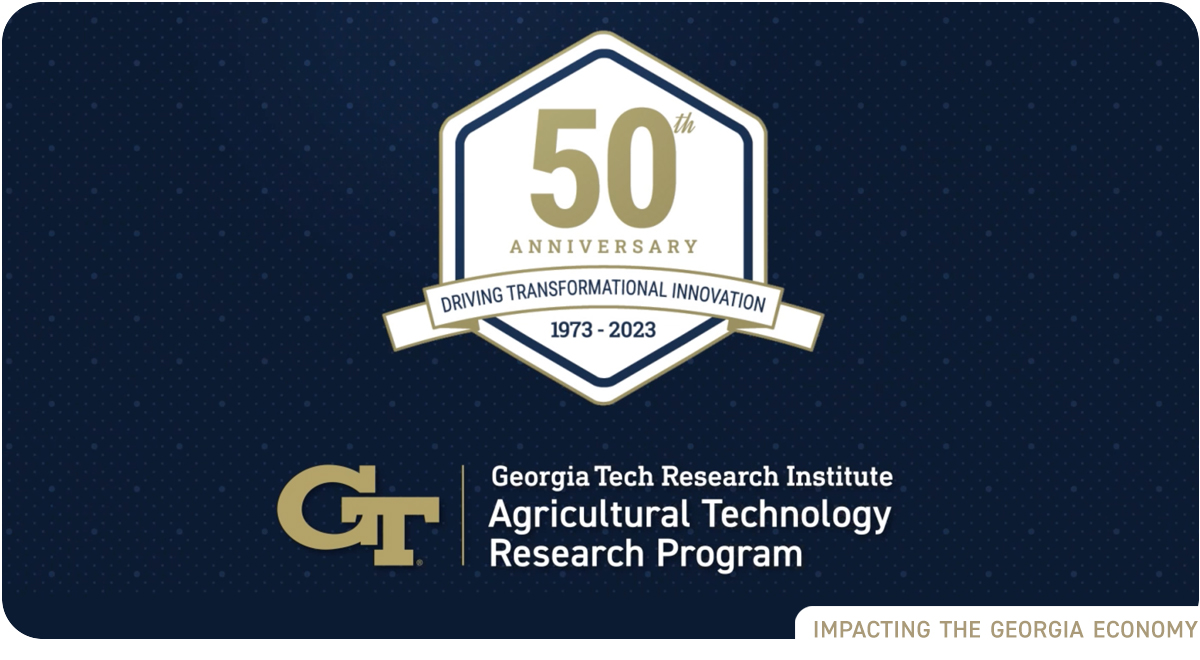
ATRP’s 50th Anniversary: The Research and Relationships that Made it all Possible
Fifty years and countless research projects later, leaders at the Georgia Tech Research Institute’s (GTRI) Agricultural Technology Research Program (ATRP) say its secret to success remains the same: relationships.
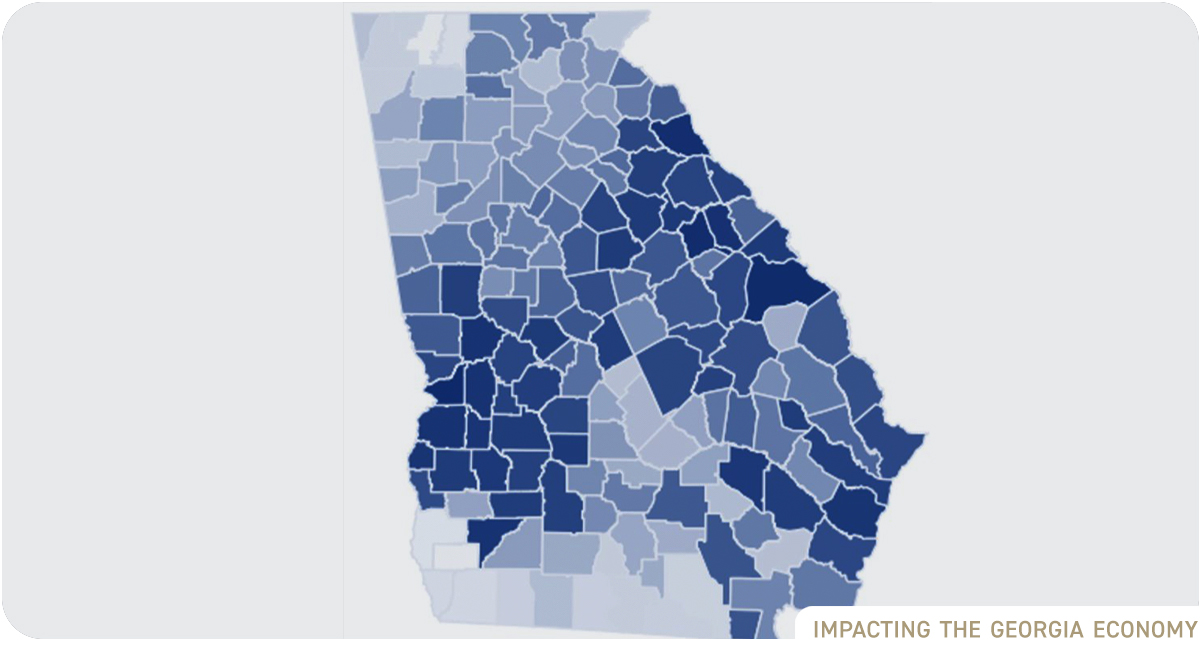
Claims Database Will Provide Clearer Picture of Health in Georgia
State policymakers, health care researchers, and others will have a clearer picture of the health of Georgia citizens thanks to a new database of medical, dental, and pharmacy claims for public and private insurance plans in the state.

GTRI Enhancing EV Battery Reuse and Recycling in Georgia
The Georgia Tech Research Institute (GTRI) is working to optimize Georgia’s EV battery supply chain by developing cost- and energy-efficient methods to recover materials from spent batteries so that more of them can be reused – and pose fewer environmental risks.

New Approaches, Including Artificial Intelligence, Could Boost Tornado Prediction
Research using data from a pair of geostationary satellites and a ground-based lightning mapping array could lead to more accurate forecasting of devastating tornadoes spinning off from severe storms.

GTRI, Georgia Tech Launch Computer Science Pilot Program for Rural Georgia High Schools
Emerging technologies like artificial intelligence, data analytics and cybersecurity have taken the world by storm, and thanks to work being done by the Georgia Institute of Technology (Georgia Tech) and the Georgia Tech Research Institute (GTRI), they are making their way into high school curriculums in rural Georgia.
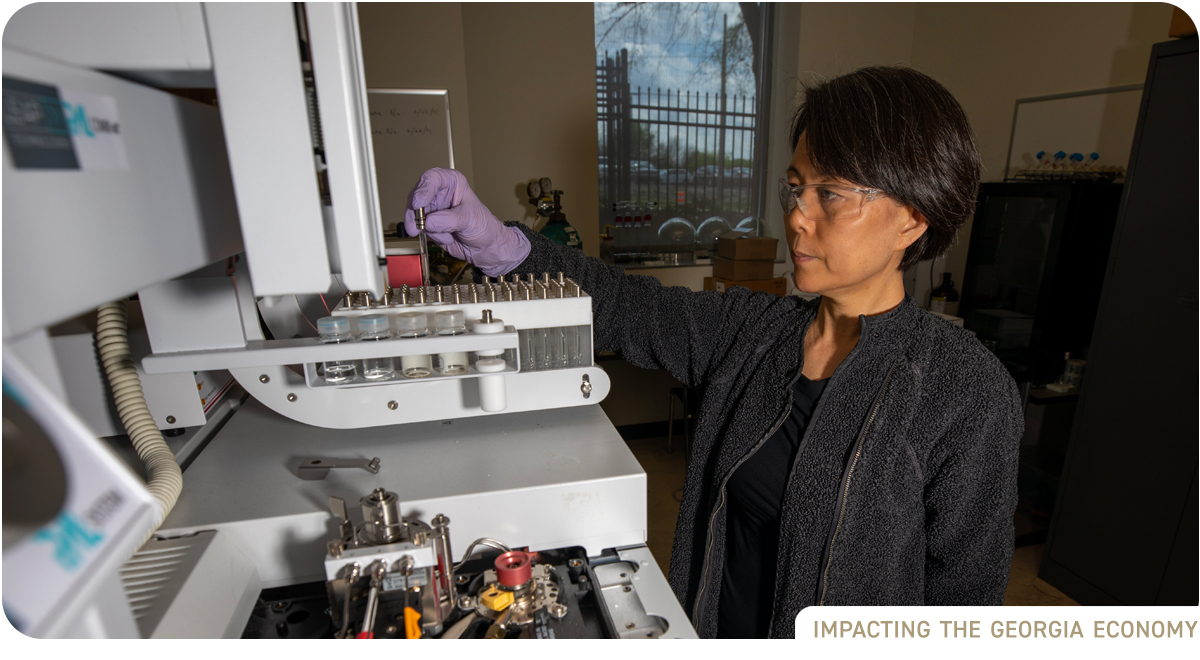
GTRI Uses VOC Sensors to Prevent Aflatoxin Contamination in Peanut Plants
All day long, peanut plants emit chemical scents in the form of volatile organic compounds (VOCs) that can provide insight into potential stressors such as drought and disease that could reduce crop yield and lead to significant losses for farmers and distributors.

New Marine Corps Contract Will Support Logistics, Broad Range of Research
A $51 million, five-year contract awarded from the U.S. Marine Corps Logistics Command (MARCORLOGCOM) will expand Georgia Tech’s support to Marine Corps Logistics Base Albany in Southwest Georgia and open new opportunities for research to support U.S. Marine Corps (USMC) missions across a broad range of logistics, innovation, supply chain, and applied engineering issues.

GTRI, Children’s Healthcare of Atlanta and Emory Use Wearable Sensors to Address Healthcare Worker Burnout
Healthcare worker burnout, a topic that received significant attention during COVID-19, continues to pose risks for the nation’s health and economic wellbeing.

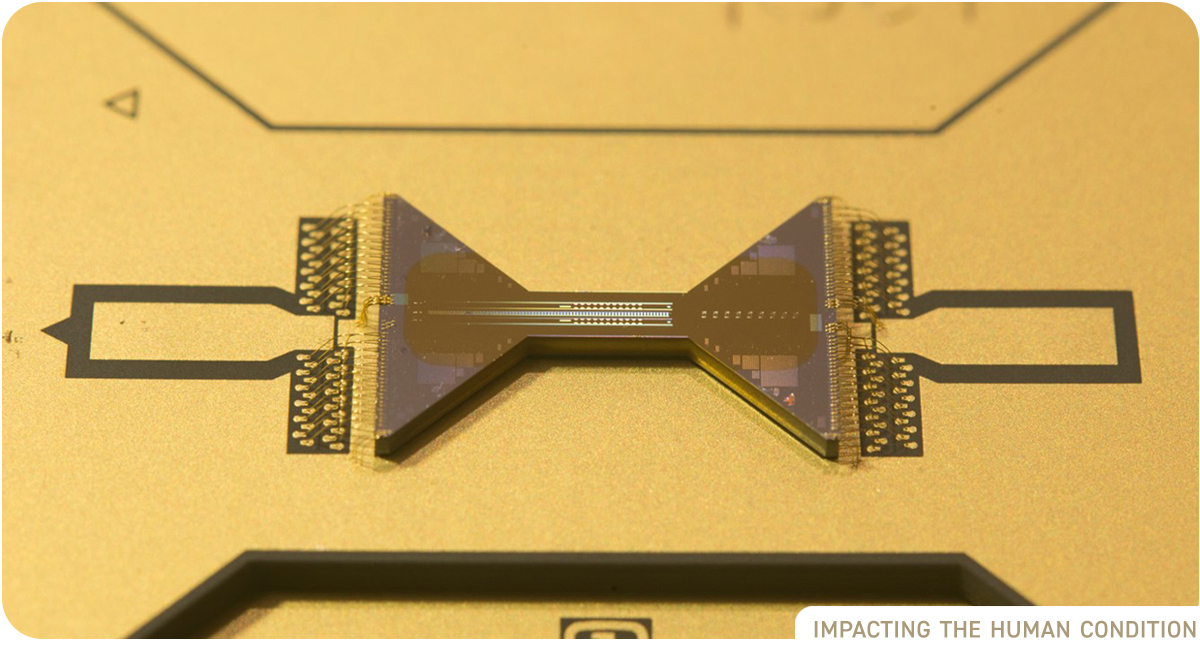
New Ion Cooling Technique Could Simplify Quantum Computing Devices
A new cooling technique that utilizes a single species of trapped ion for both computing and cooling could simplify the use of quantum charge-coupled devices (QCCDs), potentially moving quantum computing closer to practical applications.
Aeroacoustics Research Could Help Quiet Upcoming Supersonic Business Jets
Groundbreaking aeroacoustics research being done for the Federal Aviation Administration (FAA) by researchers at the Georgia Institute of Technology (Georgia Tech) and Savannah-based Gulfstream Aerospace could lead to quieter operation of future supersonic civilian aircraft, including business jets.
GridTrust Helps Protect the Nation’s Electric Utilities from Cyber Threats
A new cybersecurity technology that relies on the unique digital fingerprint of individual semiconductor chips could help protect the equipment of electrical utilities from malicious attacks that exploit software updates on devices controlling the critical infrastructure.
Common Probiotic Bacteria Could Help Boost Protection Against Influenza
A newly funded research project might one day lead to the development of a pill or capsule able to boost the effectiveness of traditional vaccines against influenza, which kills as many as 52,000 people and leads to hundreds of thousands of hospitalizations a year in the United States.
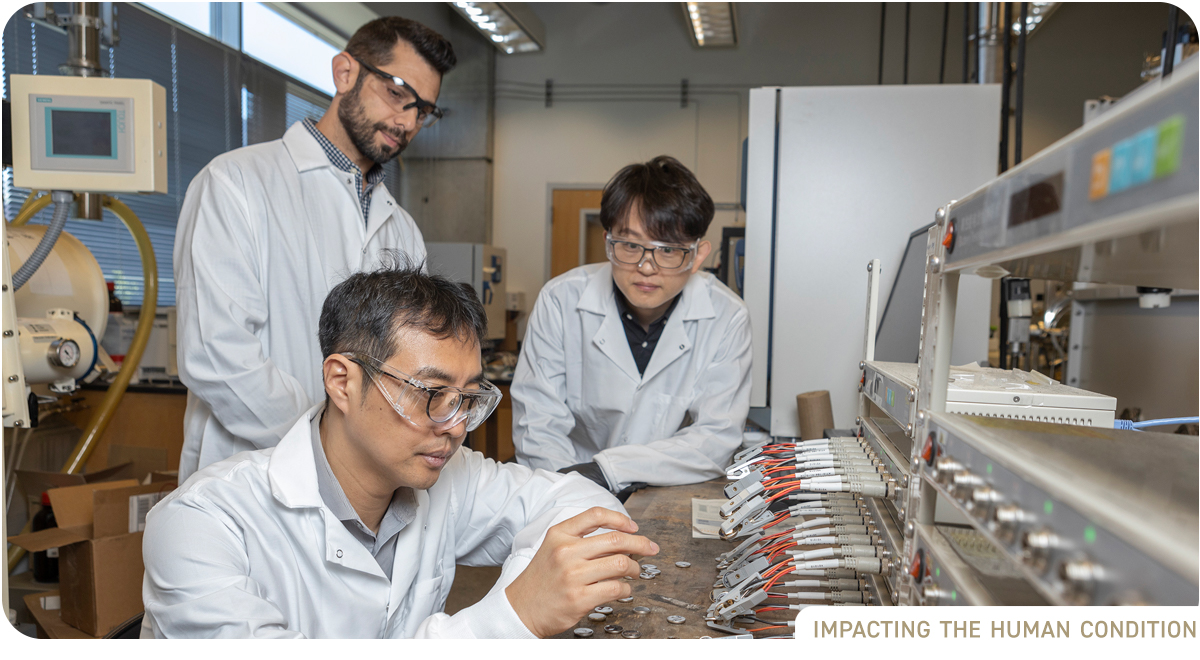 Hybrid Ceramic-Polymer Batteries Offer Safety, High-Performance Potential
Hybrid Ceramic-Polymer Batteries Offer Safety, High-Performance Potential
Future generations of solid-state lithium-ion batteries based on hybrid ceramic-polymer electrolytes could offer the potential for greater energy storage, faster recharging, and higher electrochemical and thermal stability – while overcoming many of the technology challenges associated with earlier solid-state batteries.
Nucleic Acid-Based Devices Will Rapidly Diagnose Sepsis, Respiratory Infections
A multidisciplinary team led by Georgia Institute of Technology (Georgia Tech) researchers has received $14.7 million in funding from the Defense Advanced Research Projects Agency (DARPA) to develop novel diagnostic devices able to rapidly identify the bacteria causing sepsis – and viruses that cause respiratory infections such as RSV, SARS-CoV-2, and influenza.

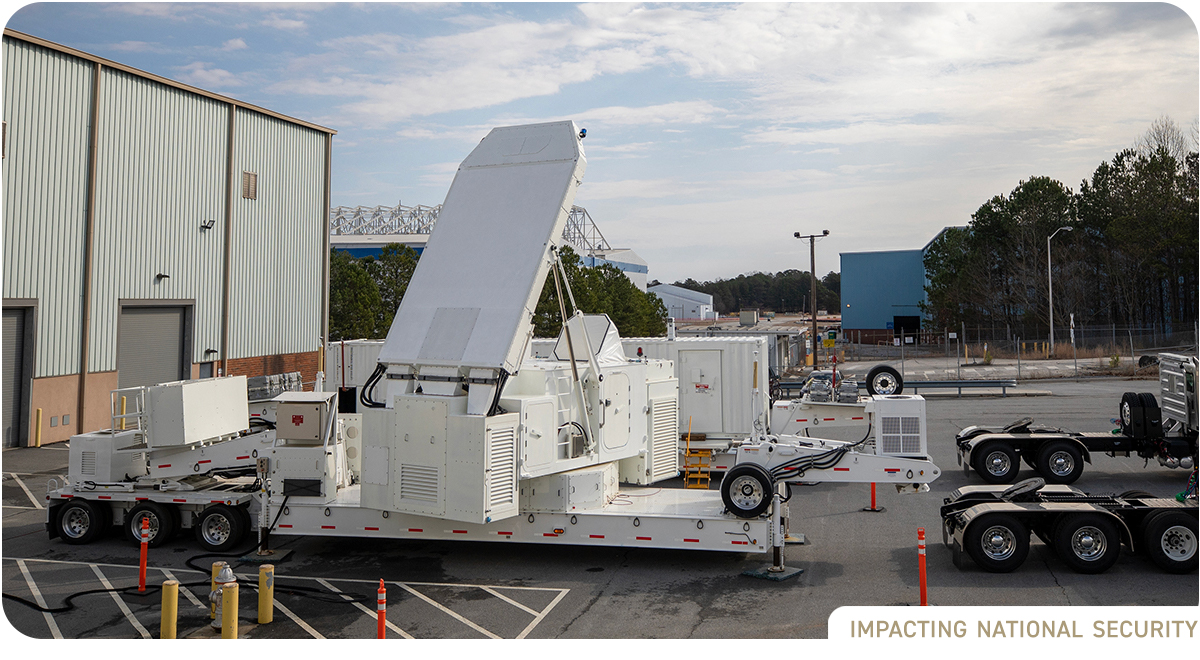
Advanced Radar Threat System Helps Aircrews Train to Evade Enemy Missiles
U.S. pilots and aircrews will be safer flying into contested airspace thanks to training provided by a 142-ton threat simulator system that shows them how radars built to guide hostile surface-to-air missiles (SAMs) interact with warning systems on their aircraft.
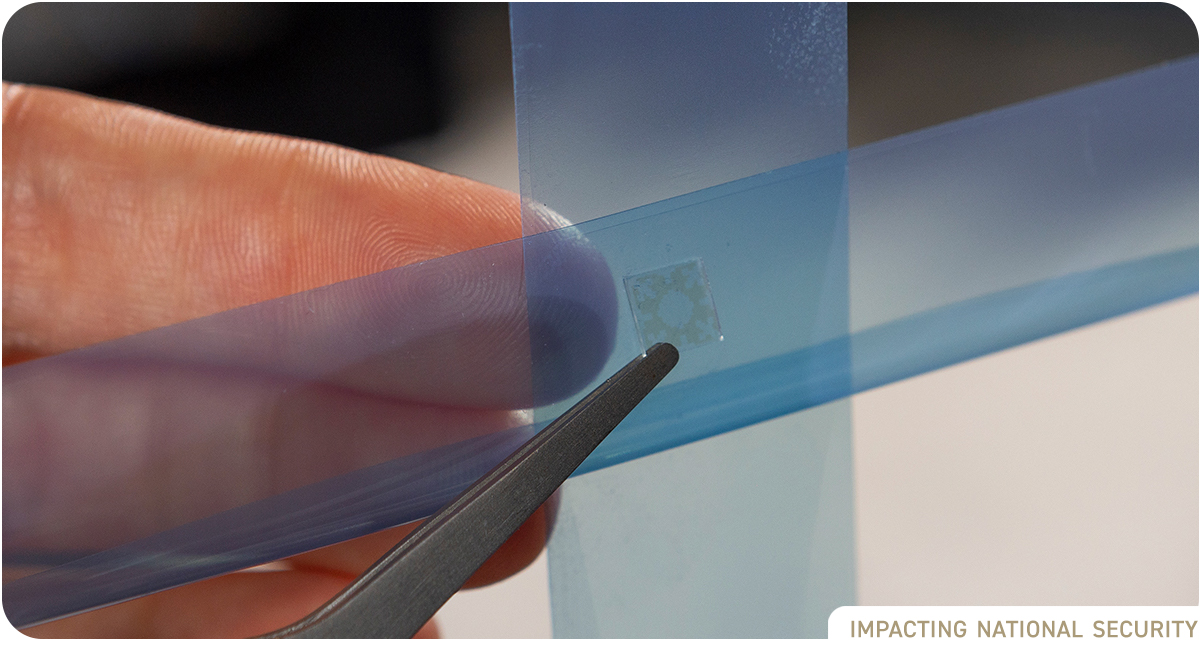
New Battlefield Obscurants Could Give Warfighters a Visibility Advantage
Clouds of tiny structures that are lighter than feathers – and whose properties can be remotely controlled by radio frequency (RF) signals – could one day give U.S. warfighters and their allies the ability to observe their adversaries while reducing how well they themselves can be seen.
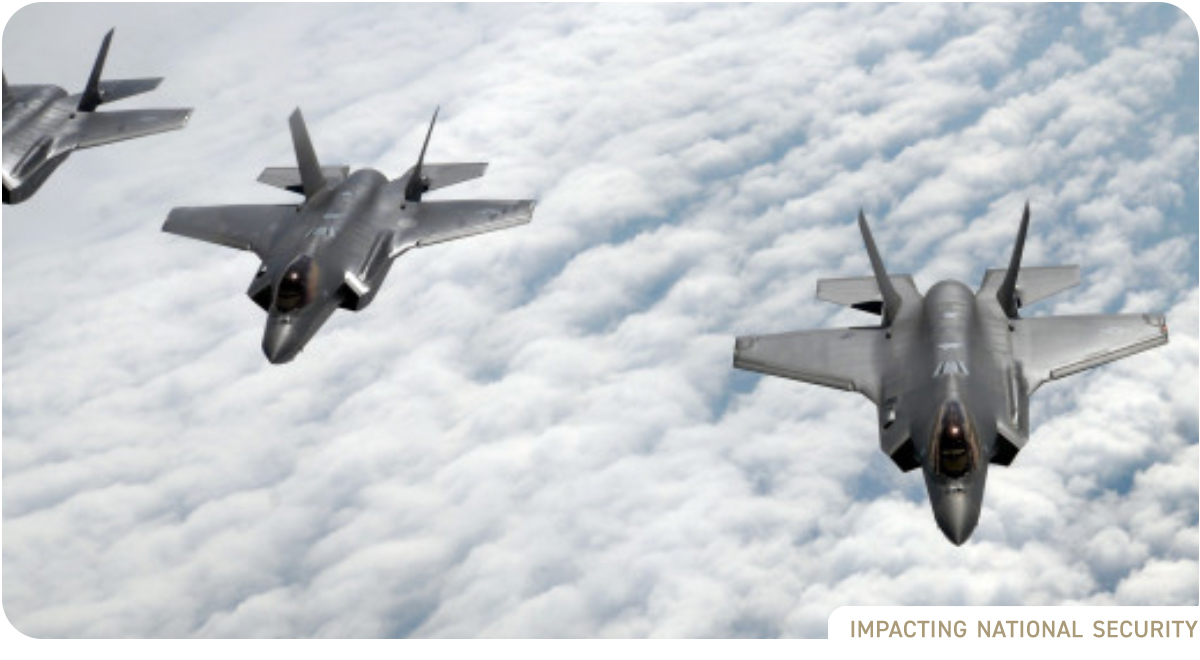
Ranges of the Future Will Enhance Joint Warfighter Training and Readiness
Training ranges across the United States and around the world help pilots and aircrew members stay at the top of their game, all while adopting the new tactics and equipment necessary to address the changing threat environment. A training solution known as WarRoom is helping fulfill the program’s tagline, “Better Training. Faster.” by integrating disparate training applications and systems at the ranges.
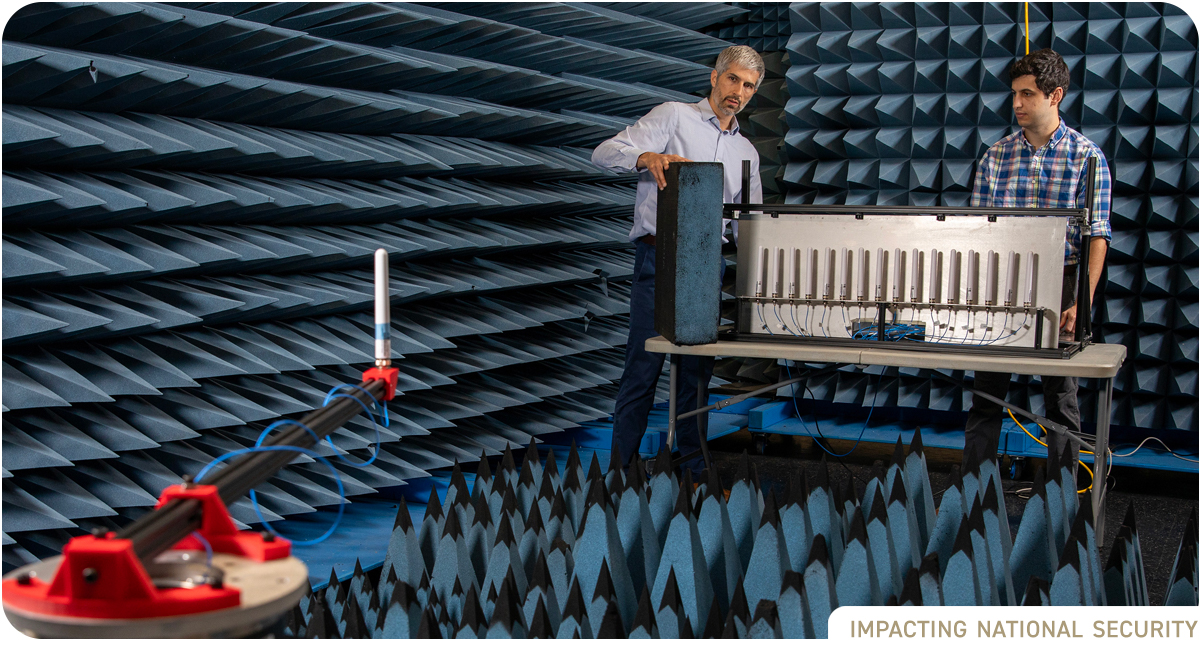
TRIAD Streamlines Edge Processing of Data in Phased-Array Antennas
As the number of elements on phased array antennas continues to grow, so does the volume of data that must be processed to extract information from the signals gathered. Researchers at the Georgia Institute of Technology have developed a new approach to intelligently process that data closer to where it is generated - on the antenna subarrays themselves.
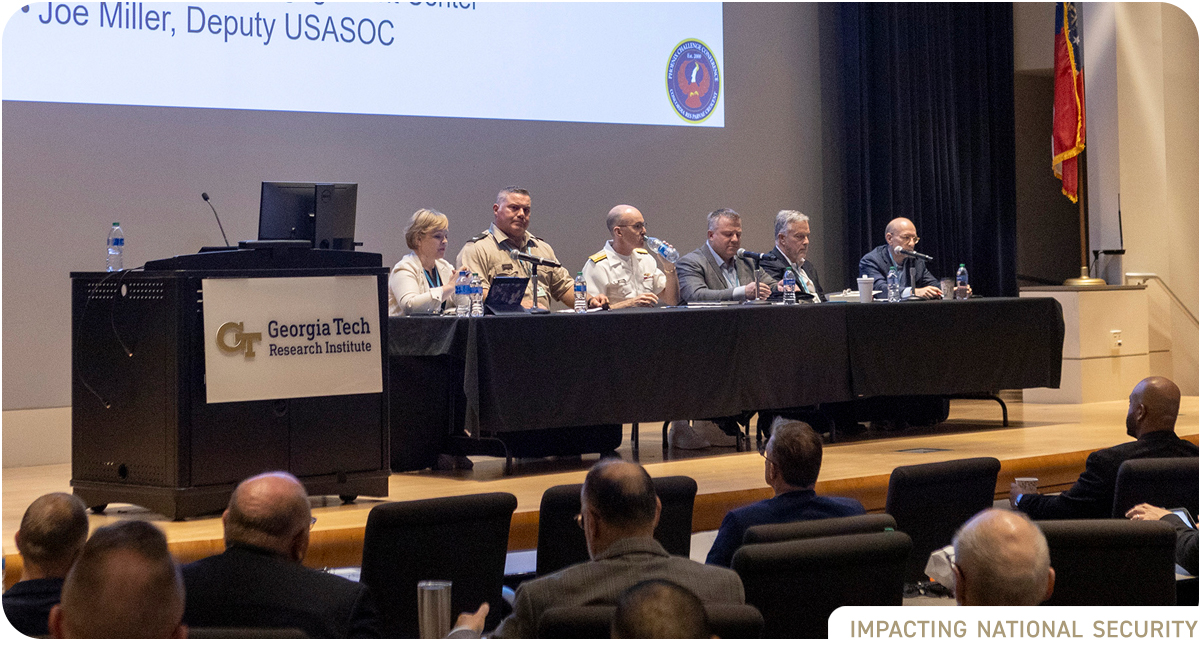
Phoenix Challenge: Collaborating to Improve the Information Environment
Generative AI has captured worldwide attention for its potential applications in such areas as disease diagnosis, data analysis, writing, and computer coding. But at a recent meeting held at the Georgia Tech Research Institute (GTRI) in Atlanta, attendees were concerned about how very different applications of AI may be affecting critical operations in the information environment (OIE).
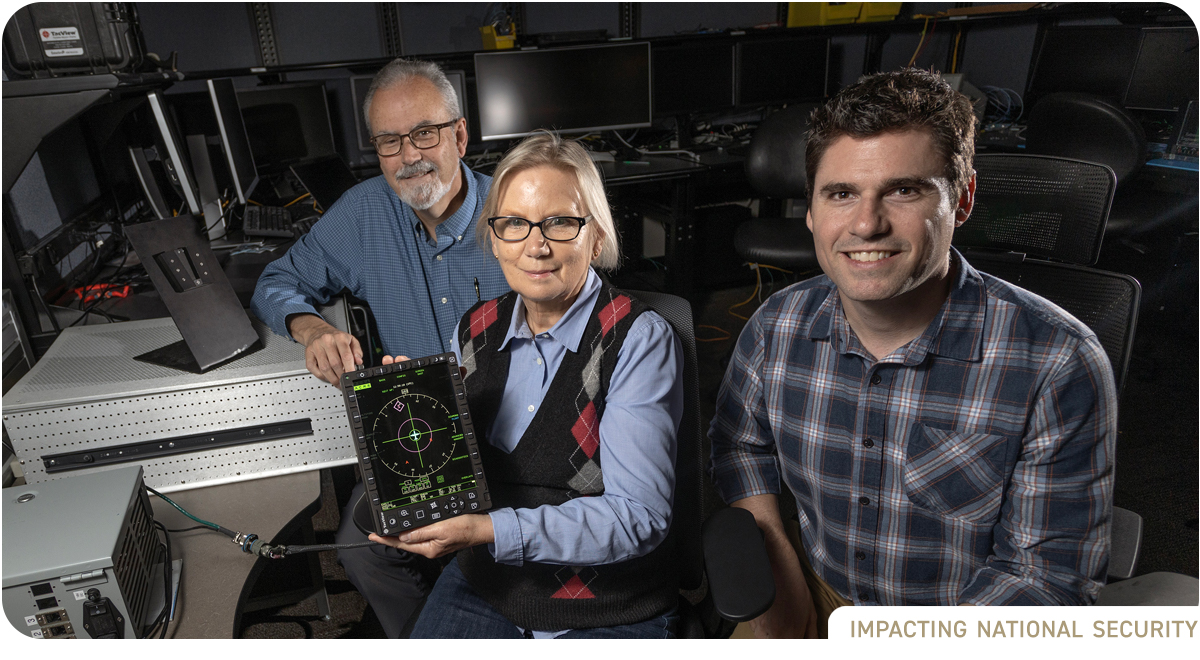
AIECS Integrates Threat Information to Help Protect Air Mobility Crews
Aircrews flying in hostile airspace must often make split-second decisions responding to the threats they may encounter. A new defensive system planned for installation on C-130H transport aircraft integrates on-board and off-board information about those threats into a single display, allowing crewmembers to rapidly understand and respond to the complex threat environment they face.
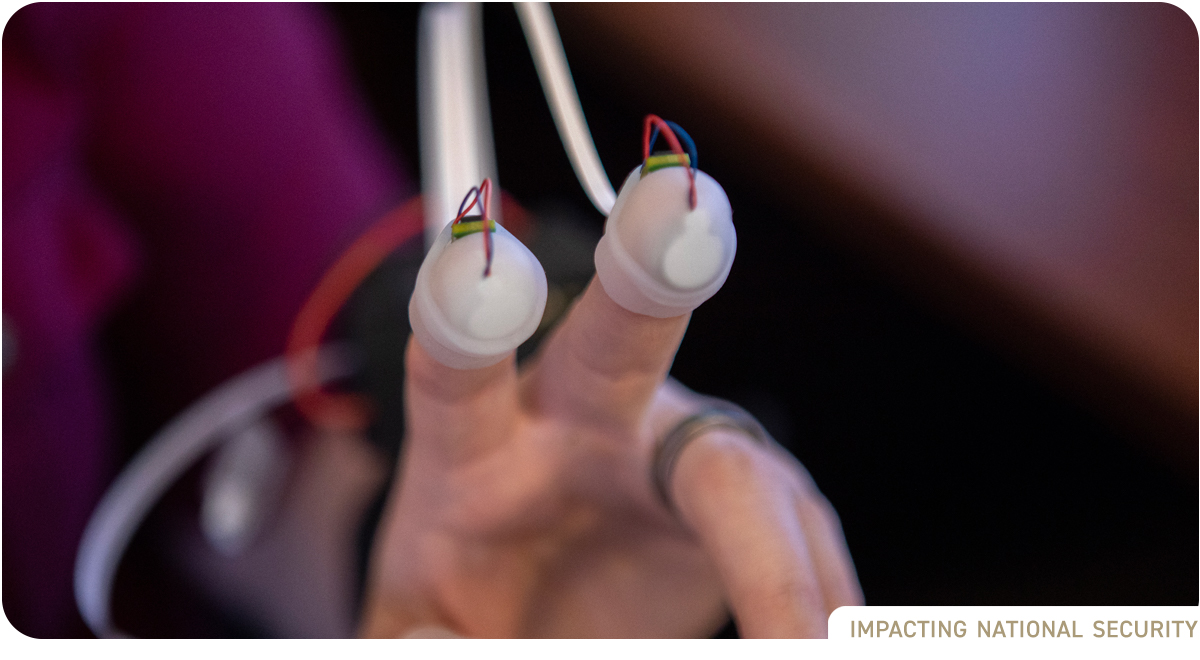 GTRI Uses Haptic Technology to Enhance VR Military Training
GTRI Uses Haptic Technology to Enhance VR Military Training
Not just a technology for gamers, virtual reality (VR) is transforming countless industries, including the defense sector. The Georgia Tech Research Institute (GTRI) is utilizing haptics, which draws on people’s sense of touch, to make VR military training even more immersive and impactful.
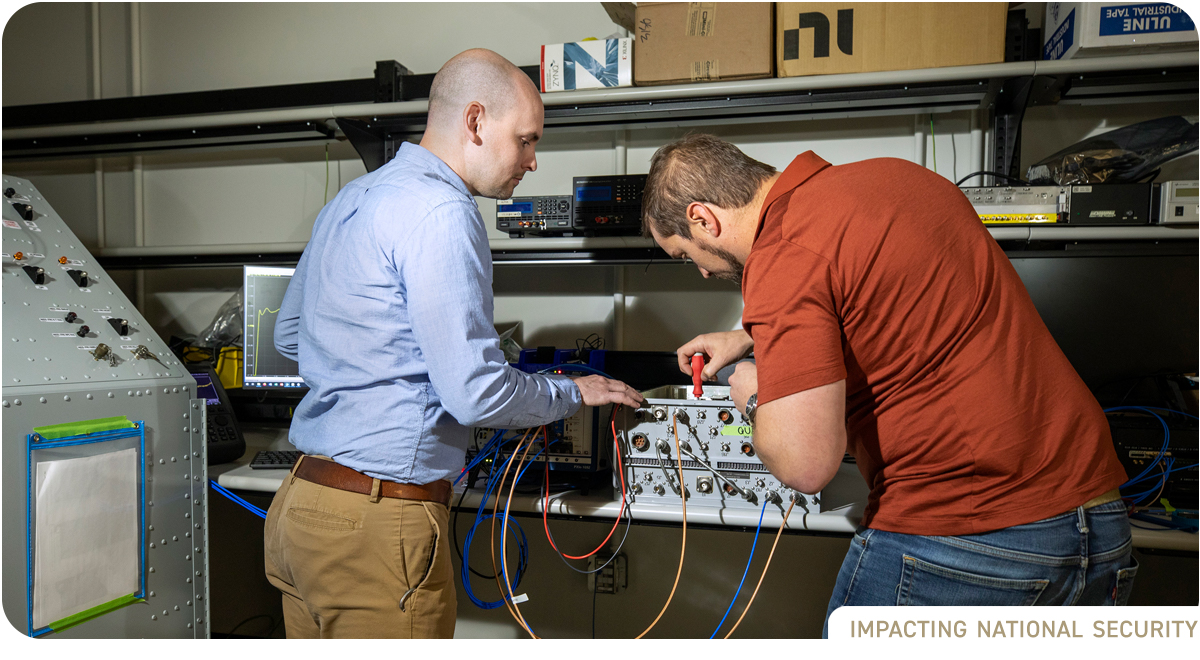
Research Team Supports Critical Upgrade to U.S. Air Force AWACS Fleet
A research team that includes more than 120 Georgia Tech Research Institute (GTRI) scientists, engineers, and technicians is helping the U.S. Air Force update systems essential to keeping the nation’s fleet of aging E-3G Airborne Warning and Control System (AWACS) aircraft in operation until a successor capability is fielded.
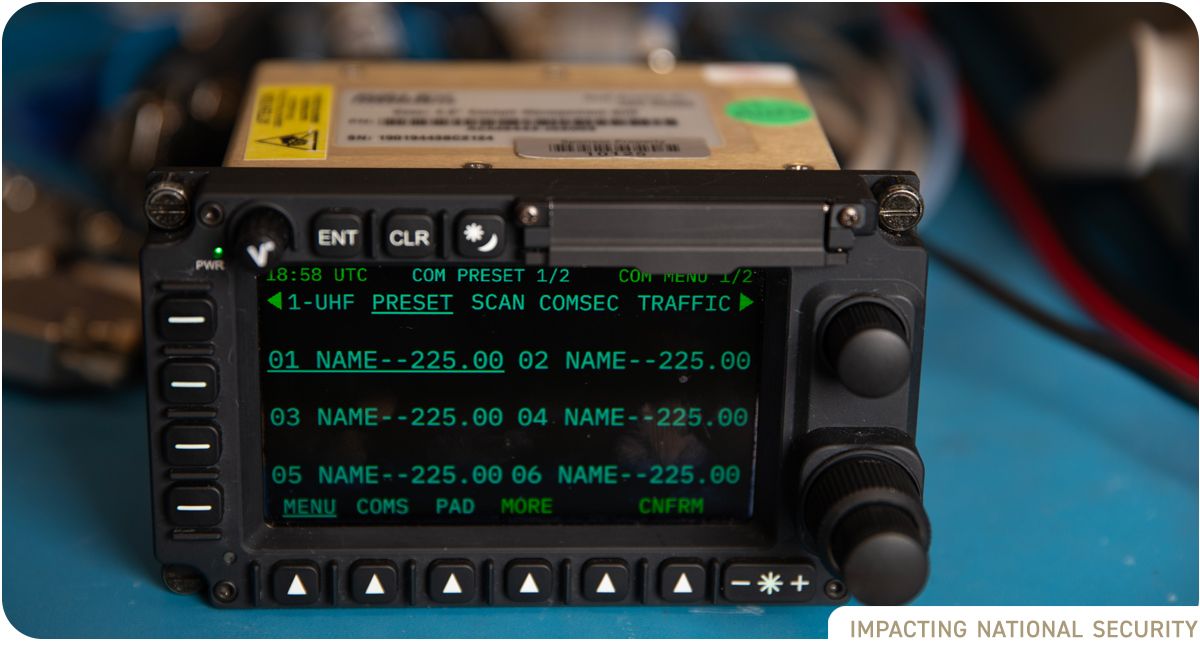
ARCM Facilitates Update of Radio Control System for Army’s UH-60M
Using a model-based systems engineering (MBSE) approach, researchers from the Georgia Tech Research Institute (GTRI) are developing the software necessary to integrate new control, radio, and cryptographic capabilities into UH-60M Black Hawk helicopters, which are mainstays of the U.S. Army’s helicopter fleet.

GTRI Develops MLOps Platform to Streamline Data Management for the DoD
Researchers at GTRI are developing a Machine Learning Operations (MLOps) platform that standardizes the development and testing of artificial intelligence (AI) and ML models to enhance the speed and efficiency with which these models are utilized during real-time decision-making situations.

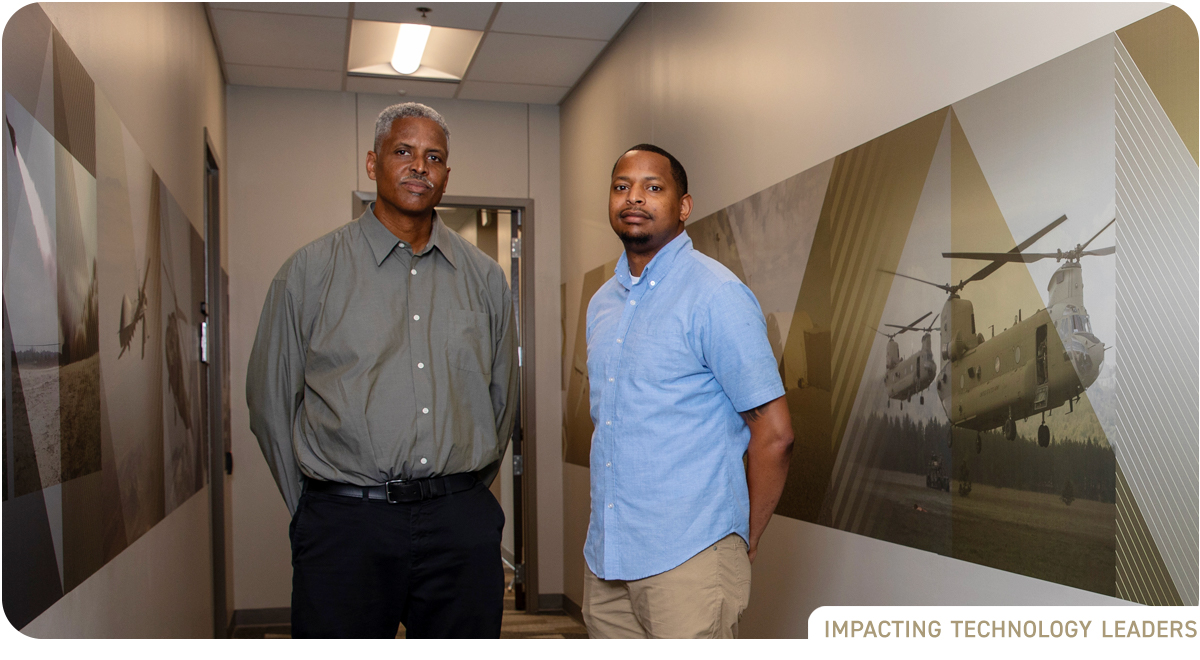
GTRI’s DART Program Supports DoD Research Opportunities for HBCUs
Historically black colleges and universities, or HBCUs, contribute an estimated $15 billion to the U.S. economy each year and produce one-fourth of all Black graduates with critical degrees in science, technology, engineering, and math (STEM). But funding inequities prevent many HBCUs from providing the necessary infrastructure to perform impactful research, including in the defense space.
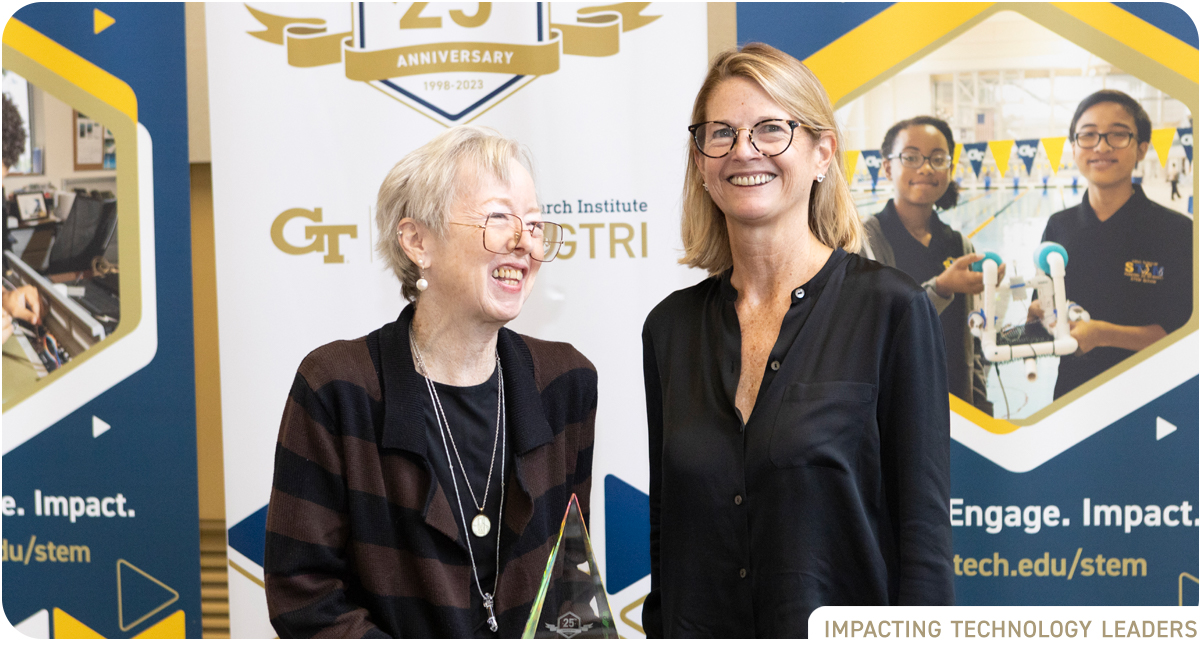
STEM@GTRI Celebrates 25 Years of Promoting Science, Technology Education
STEM@GTRI celebrated its 25th anniversary recently. STEM @GTRI is the Georgia Tech Research Institute's K-12 outreach program. STEM @GTRI strives to inspire, engage, and impact Georgia's students and educators through hands-on experiences, outreach, and professional learning.

Bridging Military Expertise with Research: GTRI’s Hiring Our Heroes Fellowship
At the nexus of military excellence and cutting-edge research, Georgia Tech Research Institute (GTRI) has embraced the Hiring Our Heroes (HOH) Fellowship, a U.S. Chamber of Commerce initiative.
 GTRI’s Professional Education Program Provides Real-World Training to Current, Future Leaders
GTRI’s Professional Education Program Provides Real-World Training to Current, Future Leaders
Chikita Sanders found the perfect fit in GTRI’s Professional Education program (GTRI-PE). GTRI-PE is connected to the Georgia Tech Professional Education program (GTPE) and offers short courses and certificate programs taught by GTRI researchers in areas such as defense technology and cybersecurity.
See also: Georgia Tech 2023 Research Report
The Georgia Tech Research Institute (GTRI) is the nonprofit, applied research division of the Georgia Institute of Technology (Georgia Tech). Founded in 1934 as the Engineering Experiment Station, GTRI has grown to more than 2,900 employees, supporting eight laboratories in over 20 locations around the country and performing more than $940 million of problem-solving research annually for government and industry. GTRI's renowned researchers combine science, engineering, economics, policy, and technical expertise to solve complex problems for the U.S. federal government, state, and industry.

